Movie Review: Biker Dreams
Produced by Neil Evans
Directed and edited by Adam Berman
One of the most poignant moments in Adam Berman's documentary Biker Dreams when "Liddo" Jim, former president of the Resurrection Biker Club in Washington state, talks about his wife, Scorpio. "Liddo" Jim is a bear of a man, an Old Skool biker, an Outlaw's Outlaw -- caprine beard, rumble chest and scarred knuckles. He is also an emotional man who's almost driven to tears as he talks about his wife. She's the most important thing in his life, except, of course, for his motorcycle. Initially, the audience laughs but soon quiets down not because of any sense of irony or tragedy in Jim's declaration, but because they respect and accept his sincerity. Simply put, "Liddo" Jim wouldn't exist without his motorcycle.
Berman's film is an enjoyable and irreverent look at the Harley-Davidson sub-culture.
Berman is particularly adept at walking the narrow line dividing the two opposing schools on Harleys and the Harley phenomenon. He mercifully steers clear of both the cheesy sentimentalism of the devout Harley faithful and the bitter, vindictive flames thrown by many of Harley's detractors. Berman never seems to forget that, after all, his film is about motorcycles.
Martin and Alex are the closest the film has to an "everyman." They are a yo
He is also an emotional man who's almost driven to tears as he talks about his wife. She's the most important thing in his life, except, of course, for his motorcycle.
ung, middle class couple, more photogenic than most bikers, but at times too cloying and cute as only the young in love are. Still, while not personally revealing, Martin and Alex remain centered, providing leveled-headed insights in comparison to Liddo's honest but crude primitivism.It's through Martin that we learn about the Hamsters, a group of RUBs (rich urban bikers) who proudly proclaim their "cowardice" by adopting yellow as the club color. The Hamsters are essentially modern day Babbits -- affluent, milquetoast, corporate businessmen seeking attention and masculine empowerment. In contrast Liddo Jim is a primitive, a square peg who, through his own hands and will, forged his fit in society while the Hamsters are the prototypical round pegs playacting fantasies of outlaw rebellion.
The difference between Liddo and the Hamsters personifies a fundamental shift in American culture. Slowly, the traditional American ethos of "you are what you produce" is being replaced by "you are what you can afford to buy." Here you will find the kernel of anti-Harley prejudice. The Liddos of the world are often anti-Simply put, "Liddo" Jim wouldn't exist without his motorcycle.social and repellent, yet it is the RUBS, the solid-citizen Hamsters who attract much of the anti-Harley backlash. The reason may be how we as a nation view ourselves. Liddo is a producer: simple, direct and proud but also volatile, savage, stubborn and occasionally a bad citizen. Worse, Liddo is unapologetic. The Hamsters are consumers: malleable, predictable, marketable yet decent citizens with enough disposable income to drop 20 Gs on a Road King and a few grand more on a customization. And, like Liddo, they are unapologetic. It is loyal men like "Liddo" Jim who stuck with Harley through the AMF Dark Ages and gave the Harley culture its distinct favor but, like it or not, it is the Hamsters and their money who are winning the hearts and minds of stockholders and thus the day.
Liddo is romanticized, yet most of us have more in common with Martin and Alex and the Hamsters than a man who without regret admits to performing beastiality in order to gain admission into the motorcycle club he once lead. Still, there is hope for the unwashed. After the final credits Berman sneaks in one last salvo from Liddo where he predicts -- actually, he warns -- there are more of his type on the horizon. Depending on how you define yourself, that is either good news or bad.
Editor's note: Biker Dreams was reviewed after a screening at the AFI Los Angeles International Film Festival and will be released in Spring, 1998. Motorcycle Online Rating: ****
More by Mark Hammond



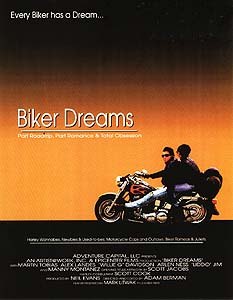











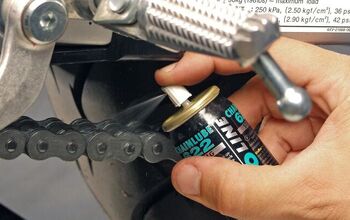


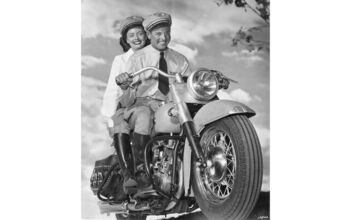
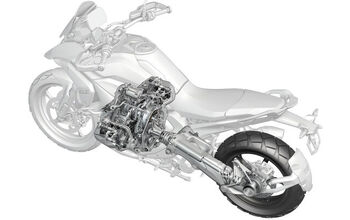
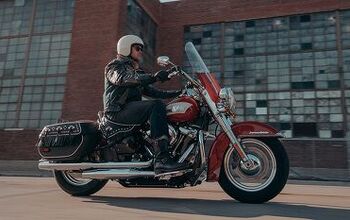



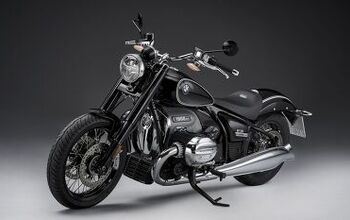
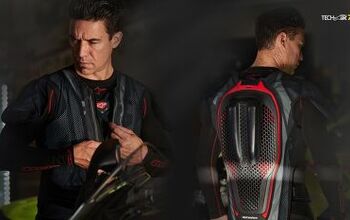


Comments
Join the conversation